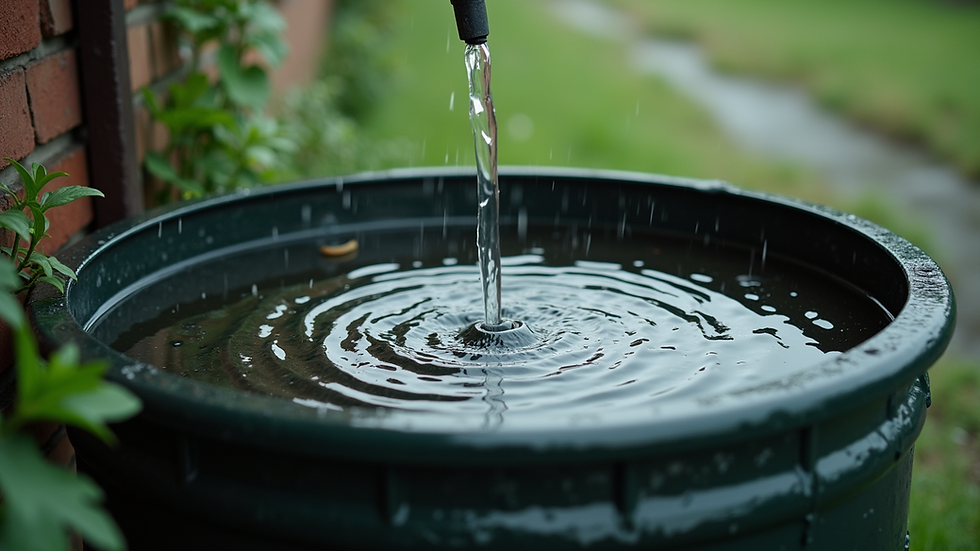Practical Solutions to Reduce Water Waste at Home
- Powerflush Pros
- Sep 3, 2025
- 3 min read
Water is one of our most precious resources, yet it is often taken for granted. Many households unknowingly waste significant amounts of water daily. By adopting practical water conservation tips, you can make a meaningful difference in preserving this vital resource. This article explores effective ways to save water at home, helping you lower your water bills and contribute to environmental sustainability.
Simple Water Conservation Tips for Everyday Use
Water conservation starts with small changes in daily habits. Here are some easy-to-implement tips that can save gallons of water:
Turn off the tap while brushing teeth or shaving. This simple action can save up to 8 gallons of water a day.
Fix leaks promptly. A dripping faucet can waste over 3,000 gallons per year.
Use a broom instead of a hose to clean driveways and sidewalks. This avoids unnecessary water runoff.
Run dishwashers and washing machines only with full loads. This maximizes water efficiency.
Install aerators on faucets. These devices reduce water flow without compromising pressure.
By incorporating these habits, you not only conserve water but also reduce your utility bills.

Close-up view of a faucet with water flowing
How Can We Reduce Water Waste?
Understanding how to reduce water waste is essential for effective conservation. Here are some practical strategies:
Upgrade to water-efficient appliances. Look for products labeled with the WaterSense label, which use at least 20% less water.
Collect rainwater for outdoor use. Rain barrels can provide water for gardening and lawn care.
Water plants early in the morning or late in the evening. This minimizes evaporation.
Use mulch around plants. Mulch helps retain soil moisture.
Check irrigation systems regularly. Fix leaks and adjust sprinklers to avoid watering sidewalks or driveways.
These methods help ensure water is used wisely and not wasted unnecessarily.

High angle view of a rain barrel collecting water
Practical Home Improvements to Save Water
Investing in home improvements can lead to long-term water savings. Consider these upgrades:
Install low-flow showerheads and toilets. These fixtures significantly reduce water use without sacrificing performance.
Replace old toilets with dual-flush models. They offer options for different flush volumes.
Add smart irrigation controllers. These devices adjust watering schedules based on weather conditions.
Insulate hot water pipes. This reduces the time it takes for hot water to reach taps, saving water.
Use greywater systems. These systems recycle water from sinks and showers for irrigation.
Such improvements may require upfront costs but pay off through reduced water bills and environmental benefits.

Eye-level view of a modern low-flow showerhead installed in a bathroom
Tips for Outdoor Water Conservation
Outdoor water use can account for a large portion of household water consumption. Here are ways to conserve water outside:
Choose drought-resistant plants. Native plants typically require less water.
Water lawns deeply but less frequently. This encourages deep root growth.
Use drip irrigation systems. These deliver water directly to plant roots, reducing evaporation.
Sweep patios and driveways instead of hosing them down.
Cover pools when not in use. This reduces evaporation.
By managing outdoor water use carefully, you can make a big impact on overall water consumption.
Monitoring and Maintaining Water Efficiency
Regular monitoring and maintenance are key to sustaining water conservation efforts:
Check your water meter for unusual spikes. This can indicate leaks.
Inspect plumbing fixtures periodically. Replace washers and seals as needed.
Educate family members about water-saving habits. Everyone’s participation matters.
Keep an eye on your water bills. Sudden increases may signal problems.
Schedule professional plumbing inspections. Experts can identify hidden leaks or inefficiencies.
Consistent attention ensures your home remains water-efficient over time.
Taking Action Today for a Sustainable Tomorrow
Water conservation is a responsibility that benefits both your household and the planet. By applying these practical water conservation tips, you can significantly reduce water waste and promote a sustainable lifestyle. Every drop saved counts toward preserving this essential resource for future generations. Start with small changes today and watch the positive impact grow.
By embracing these strategies, you contribute to a healthier environment and enjoy the financial benefits of lower water bills. Water conservation is not just a trend but a necessary practice for a sustainable future.





Comments